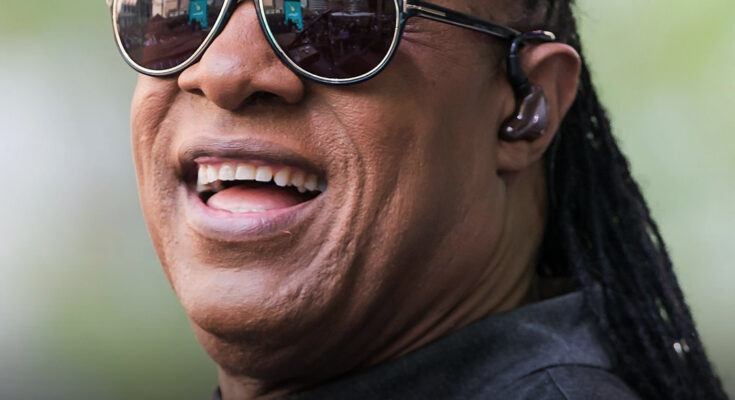Stevie Wonder, one of the most influential musicians globally, lost his sight as a newborn due to medical negligence. Despite this, he remains content with how his life has unfolded, often proudly displaying his eyes.
A musical genius from a young age, Stevie Wonder has been open about his blindness over the years, sharing his experiences and insights. His journey began in Saginaw, Michigan, the city where he was raised.
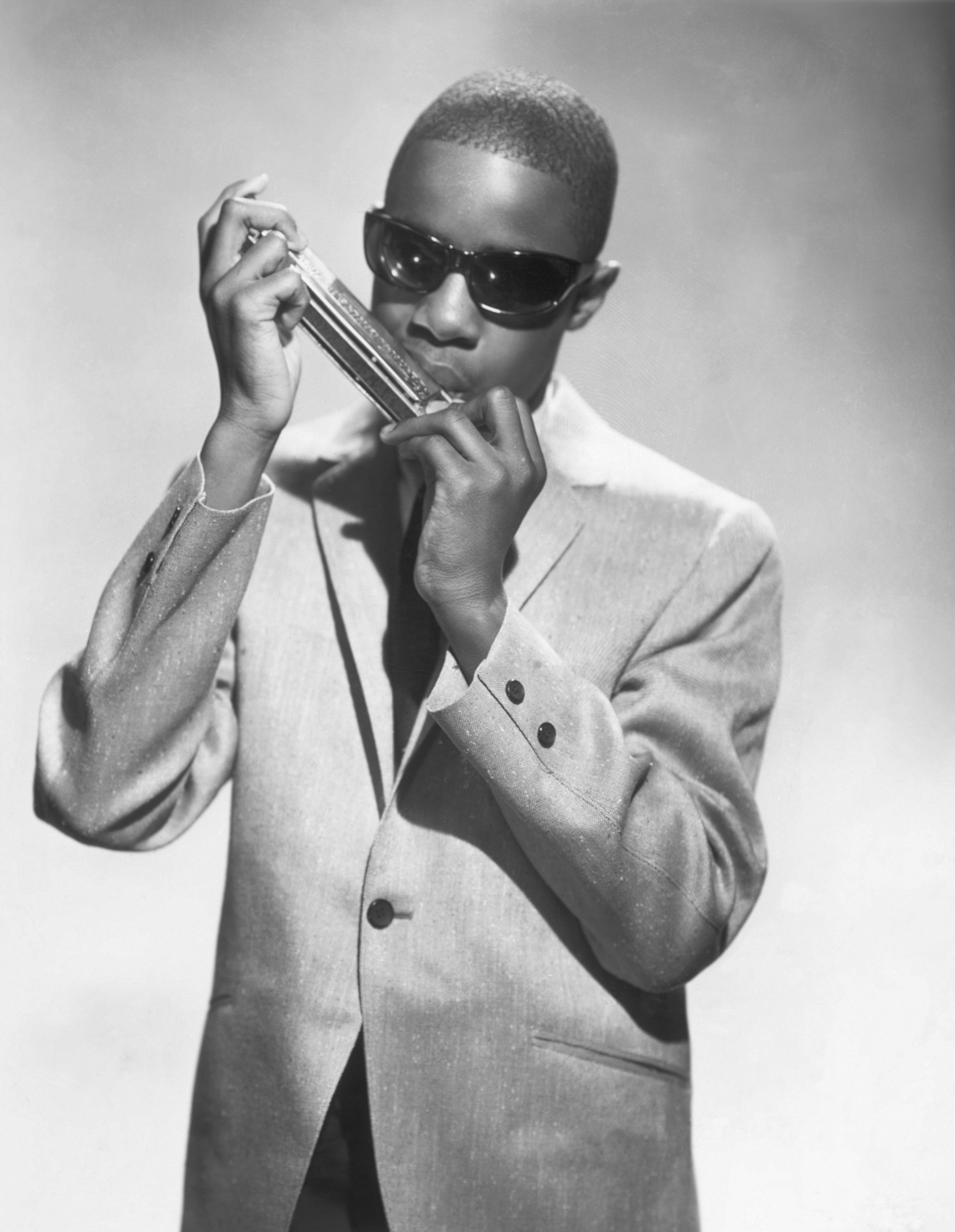
Stevie Wonder playing a harmonica on January 1, 1960 | Source: Getty Images
Born Stevland Hardaway Morris on May 13, 1950, Wonder once shared in a revealing interview that he was not born blind. He explained that his blindness resulted from a medical error shortly after his premature birth. When asked if he perceives any light, Wonder responded, “I may have.”
He has a condition called retrolental fibroplasia, which resulted due to exposure to excessive oxygen. This was common for premature babies in the ’50s before doctors discovered an alternative. “That’s how I became blind,” said Wonder.
In a separate interview from 2004, the record producer revealed that another child who was born one minute before him lost her life because she couldn’t withstand the oxygen she was given while inside an incubator.
When asked if he felt indifferent about the doctor being responsible for his condition, Wonder responded that he did not. He recounted a visit to Saginaw, Michigan, where he returned to the hospital where he was born.
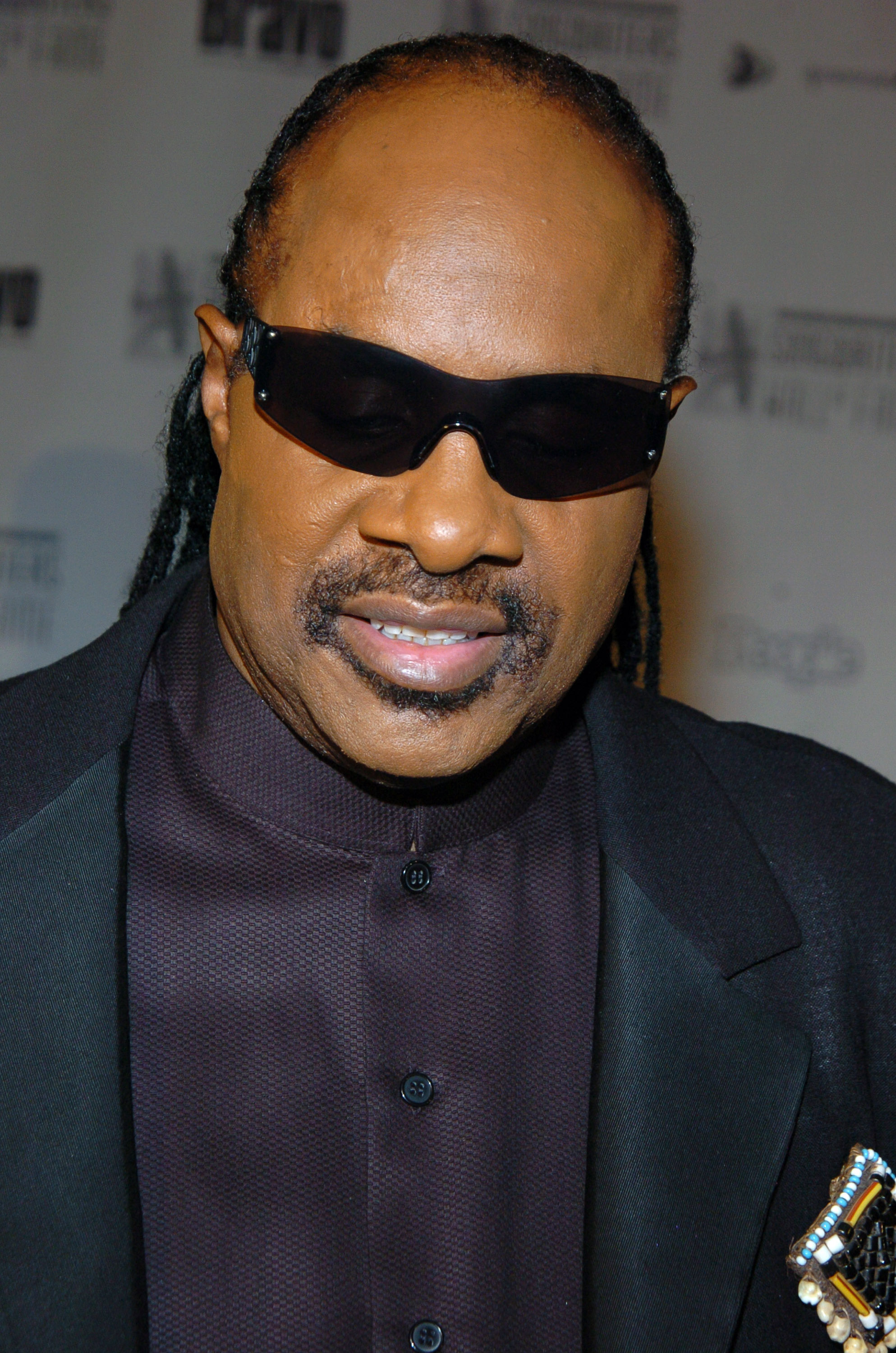
Stevie Wonder during 35th Annual Songwriters Hall of Fame Awards Induction on June 10, 2004, in New York City. | Source: Getty Images
During this visit, there was significant attention, and he was presented with a special award. Wonder speculated that people might have feared he intended to sue the doctor responsible for the medical error. However, he made it clear that the doctor had no intention of causing him harm.
Asked of he remembers seeing colors at all, the “Happy Birthday” singer said, “When someone mentions a color, I associate it with my understanding of what that color is. I may have been able to see for a short time after I was born.”
At just five years old, Wonder reportedly reassured his mother not to worry about his blindness, expressing that he was happy despite his condition. He shared these words with her because she was deeply emotional about his situation.
“It bothered me that my mother was crying all the time,” Wonder admitted, adding, “She thought God might be punishing her for something.” Stevie Wonder reflected on his mother’s life, noting that she lived during a time when circumstances were especially challenging for a woman like her.
He used to express that if anything happened to her, he would want to die alongside her because of his deep love for her. However, he now feels driven to live in order to embody and continue the kindness and goodness she taught him.
When asked about the most important lessons his mother had passed on to him, the “Isn’t She Lovely” hitmaker shared that she taught him “to persevere, to never be ashamed, and to not let my past bury me.”
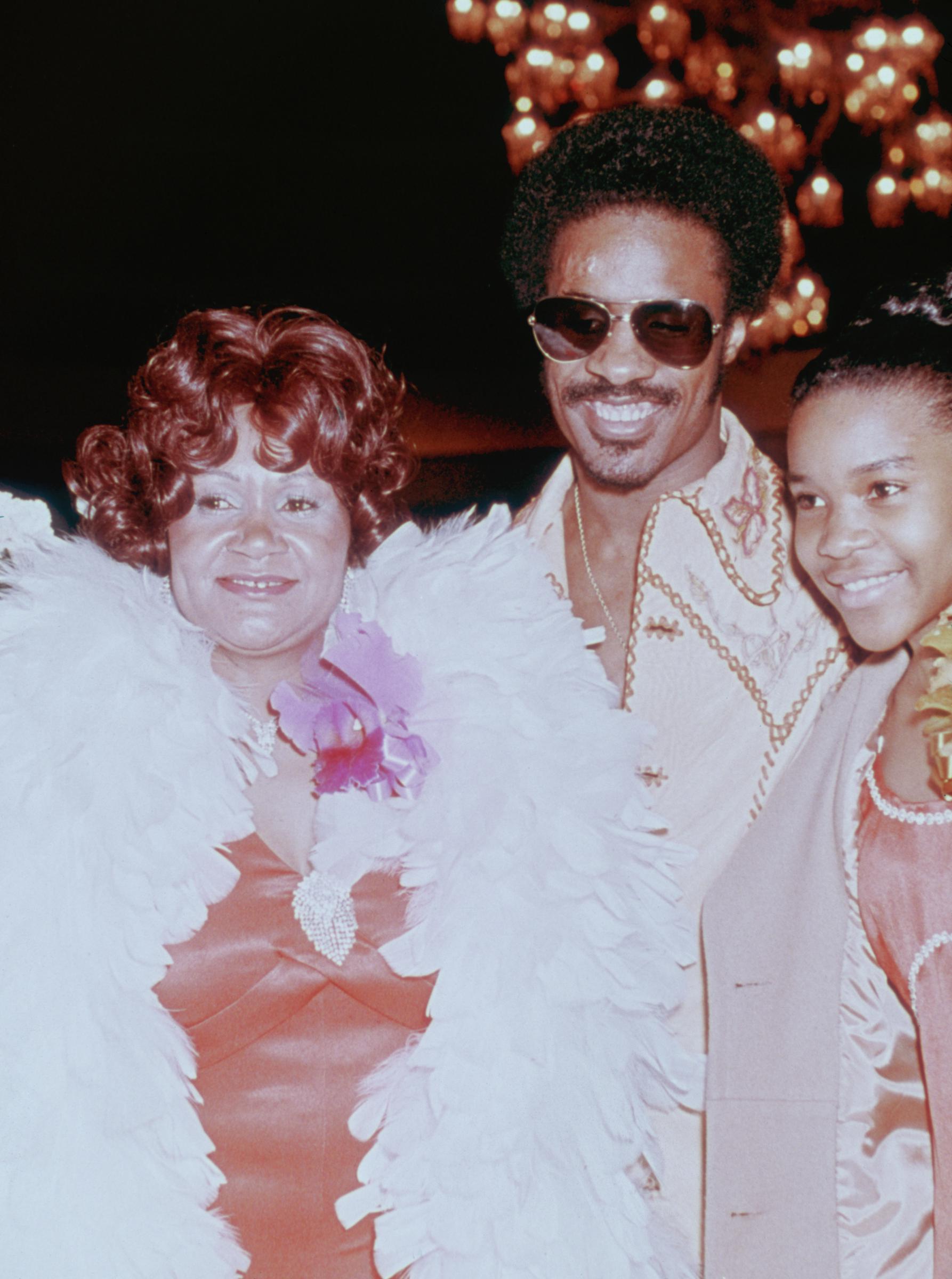
Lula Mae Hardaway, Stevie Wonder and his sister at the Grammy Awards on March 2, 1974, in Hollywood. | Source: Getty Images
Stevie Wonder recalled that as a child, other kids used to make fun of him because of his blindness. However, instead of being discouraged, he became more curious, thinking, “How can I climb this tree and get an apple for this girl?” That was what mattered to him.
When asked if he would change his blindness if he were reborn, Wonder responded that he wouldn’t alter his circumstances. Regarding whether he ever dreamed of being able to see, he explained, “I don’t regret what happened because it made me who I am. But I’d love to see.”
Back in 2000, there were reports that Wonder was considering getting a chip that could potentially restore his sight. He confirmed that the chip was indeed real and mentioned that he had met with the doctor who discovered it.
The Grammy Award winner explained that the chip enables the user to perceive images through impulses and that eligibility requires testing.
He further noted that he had some potential eligibility and expressed that he thought it was a great development. When asked if the chip was still in the works, the multi-instrumentalist affirmed that it was.
Since he’s never had a visual eyesight before, Wonder was asked if he could miss seeing and he said, “I miss what’s associated with seeing.”
Wonder admitted that he would be lying if he said he didn’t miss the ability to drive somewhere alone with his wife and kids, or, in the past, with his girlfriend. However, he acknowledged that there is nothing he can do about it and that he just has to find a way to work through it.
Indeed, his condition didn’t hinder him from pursuing a musical career, which he embarked on at a very young age. At just 11 years old Wonder’s life changed when Ronnie White of the Miracles discovered his talent.
After hearing about the young boy from a mutual connection, White was so impressed by his music that he introduced him to Hitsville U.S.A., a local black recording company.
Berry Gordy Jr., the company’s president, was captivated by Wonder’s voice and multi-instrumental abilities. Recognizing his extraordinary talent, Gordy signed him to a contract and gave him a more marketable, show-business name that reflected his prodigious skills.
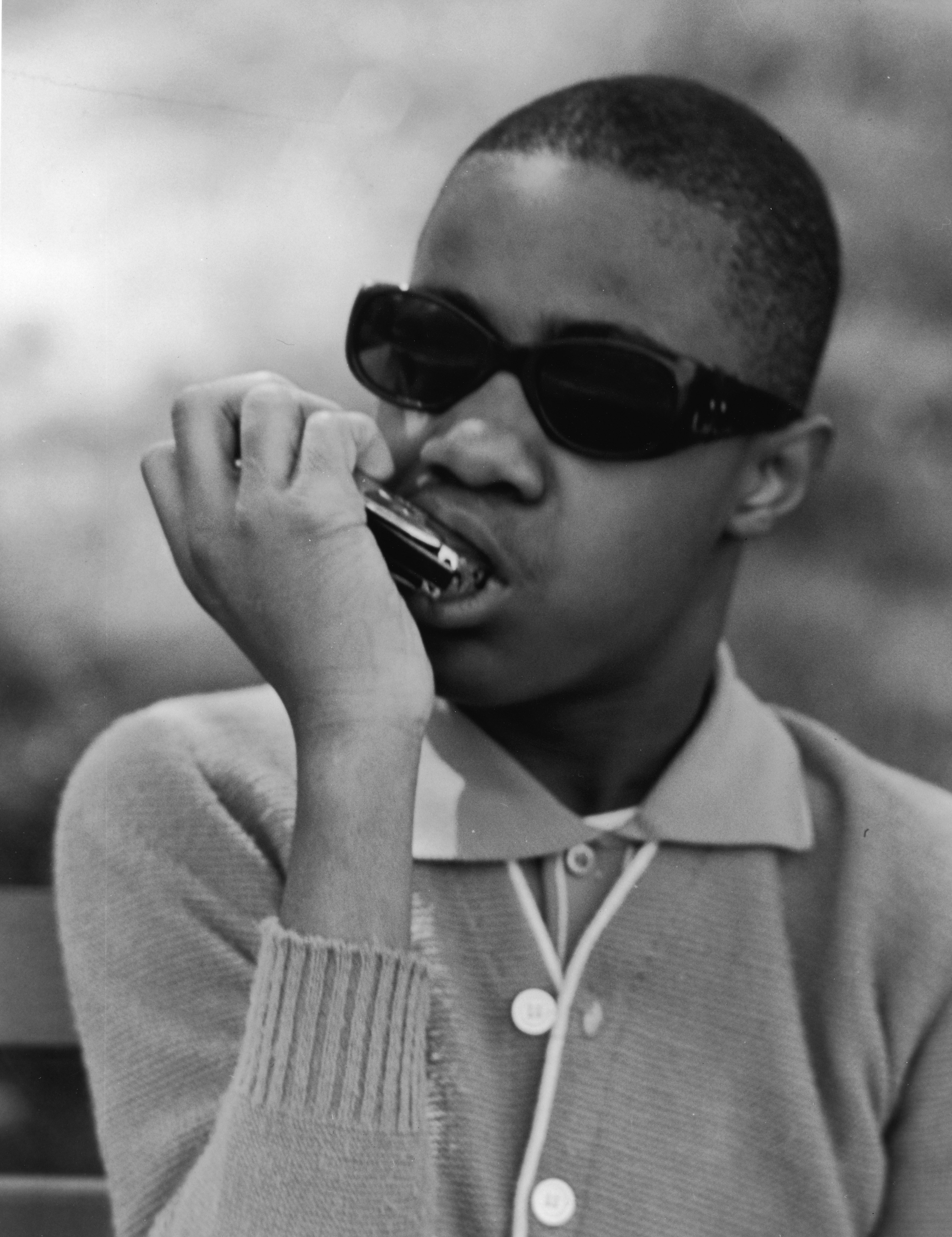
Stevie Wonder plays the harmonic on January 1, 1963 | Source: Getty Images
At 13 years old, Wonder solidified his place in music history with the hit single “Fingertips,” which sold 16 million copies. This success not only boosted his career but also helped establish his recording label, Hitsville.
Later, Hitsville rebranded as Motown, a name that became almost interchangeable with Little Stevie Wonder for many years. In a February 1972 interview, Wonder was asked if he could determine how much his blindness had influenced his music. “It’s played a part,” he responded.
Wonder explained that his blindness allowed him to use his imagination to explore different places and write lyrics inspired by what he had heard others talk about. He mentioned that, through music and his blindness, he could connect what people said with his inner feelings and thoughts.
Although the beloved musician often wears glasses when performing, there have been times when he has taken them off while on stage. One of these occasions includes his Rock & Roll Hall of Fame Induction Ceremony back in 1989.
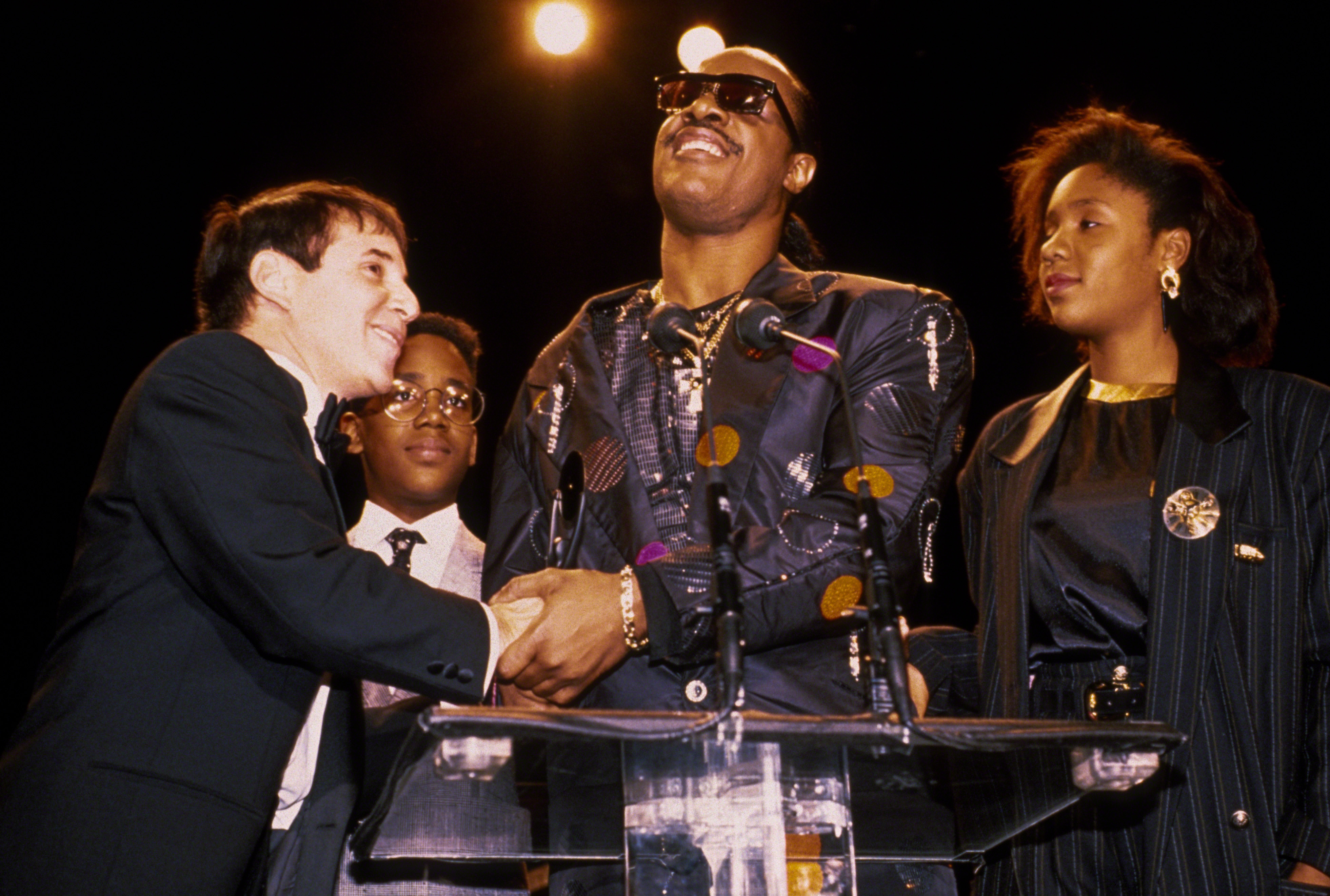
Paul Simon, Keita Wonder, Stevie Wonder and Aisha Morris attend the 1989 Rock N Roll Hall of Fame Induction Ceremony on January 1, 1989, in New York City. | Source: Getty Images
During his acceptance speech, Stevie Wonder ascended the stage with two of his children, wearing his glasses. As he prepared to speak amidst massive applause, numerous people took pictures, and cameras flashed.
Wonder politely requested that everyone stop, then removed his glasses. He also invited the audience to close their eyes, offering them a glimpse into his experience of hearing the diverse voices of people from all walks of life.
Wonder expressed that through listening, one can perceive the beauty in hope, pain, and sorrow. He conveyed that within these experiences, the divine presence within each person is revealed, allowing the voice, the instrument, and the spirit to be recognized as truly beautiful.
Meet Novak Djokovic’s Wife, Called the Most ‘Beautiful Lady of Tennis World’ – Photos
Fitness Guru Richard Simmons Found Dead: Tragic Details
John Schneider Married New Girlfriend 1 Year after Their Both Spouses Died – Who Is She?
After seeing the clip of his speech, social media users reacted and one mentioned how powerful Wonder’s message was. “Wow he said, ‘Through the eyes of our ears we see hope’ that was very deep,” commented the user.
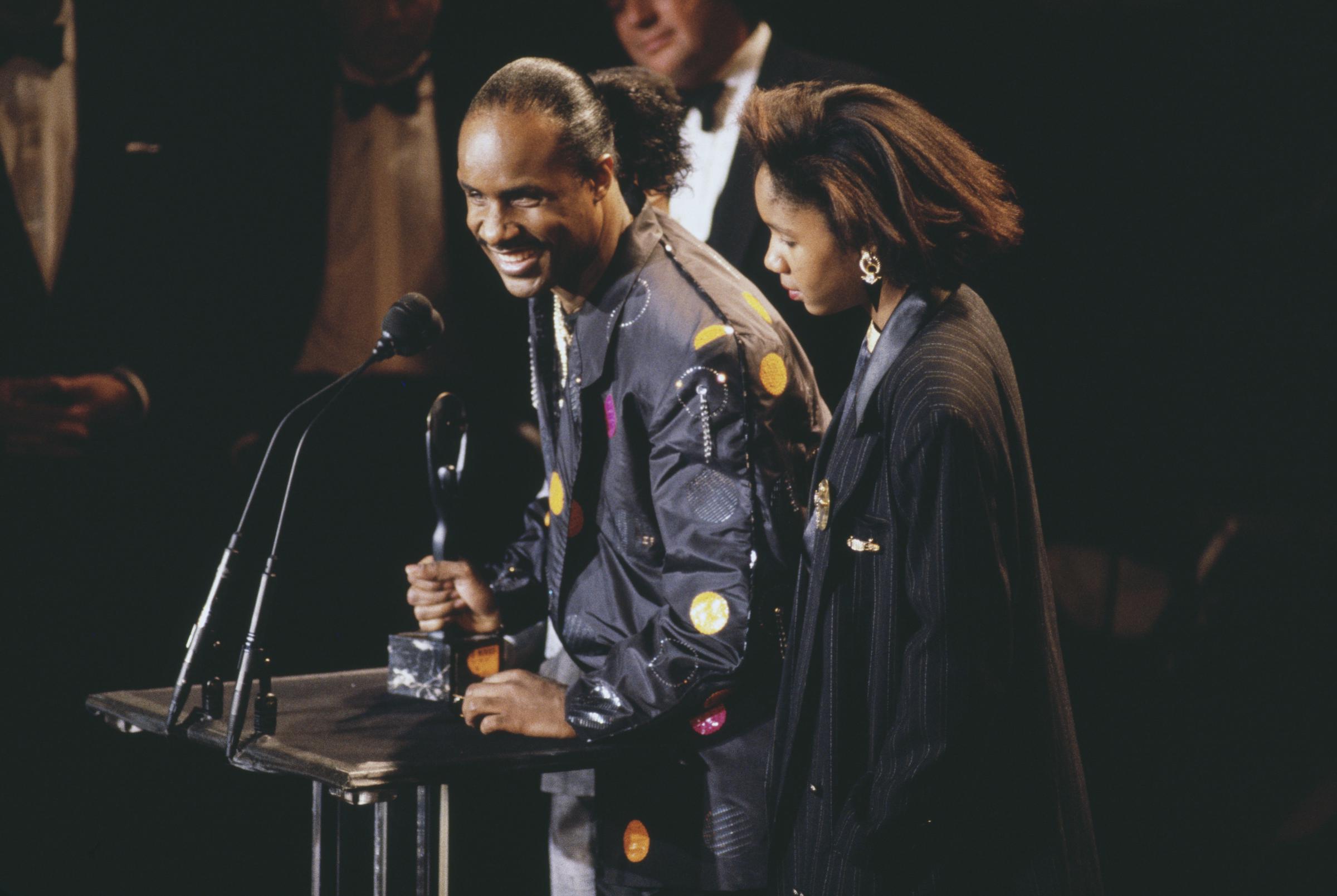
Stevie Wonder and Aisha Morris attend the 1989 Rock & Roll Hall of Fame Induction Ceremony on January 1, 1989, in New York City. | Source: Getty Images
Other people turned their focus to seeing Wonder without his glasses as one admitted, “I always wondered what he looked like without his sunglasses.” Someone else gushed over the award-winning star saying, “I had never seen how handsome he is until he took off his sunglasses.”
Another instance of Wonder removing his glasses occurred in March 2010. During the 25th Victoires de la Musique, the annual French music awards ceremony, he humorously remarked that he was taking a “look at” his career achievement award as he removed his glasses.
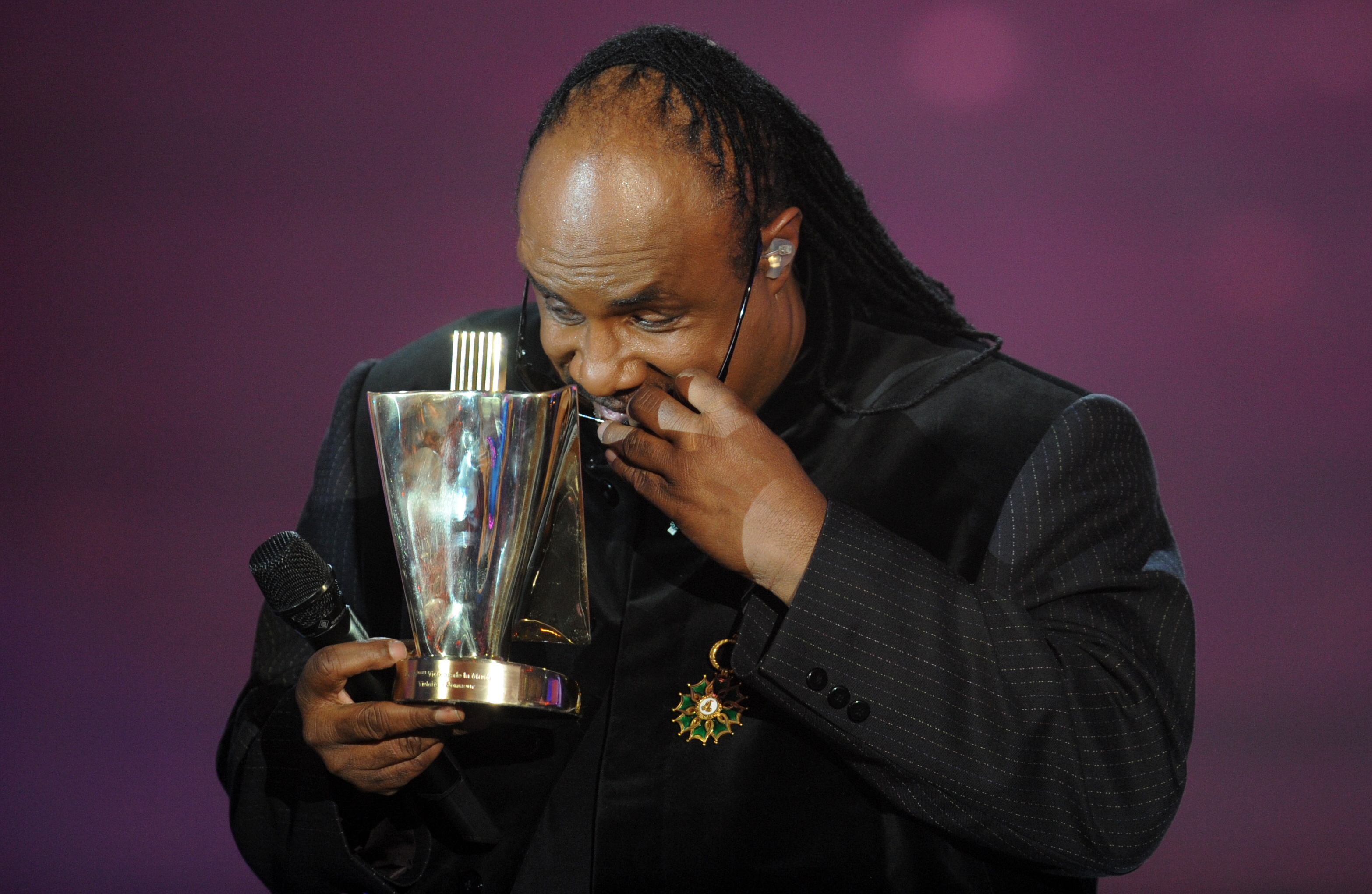
Stevie Wonder takes off his glasses during the 25th Victoires de la Musique yearly French music awards ceremony on March 6, 2010, in Paris, France.
In addition, while in Québec, Wonder was seen without his glasses again on stage while delivering a speech. A video from the event shows the audience applauding him during his speech.
Most recently, the singer performed at the Democratic National Convention in Chicago. When he first took to the stage, he expressed his love to the audience and told them every song he has ever written and sang, was because of his adoration for them. He then performed “Higher Ground.”
Wonder’s remarkable journey, from overcoming blindness to becoming a musical legend, highlights his resilience and creativity similarly to the late Ray Charles. Through his music and rare moments without his glasses, he continues to inspire and connect with audiences, showing that true vision comes from within.
